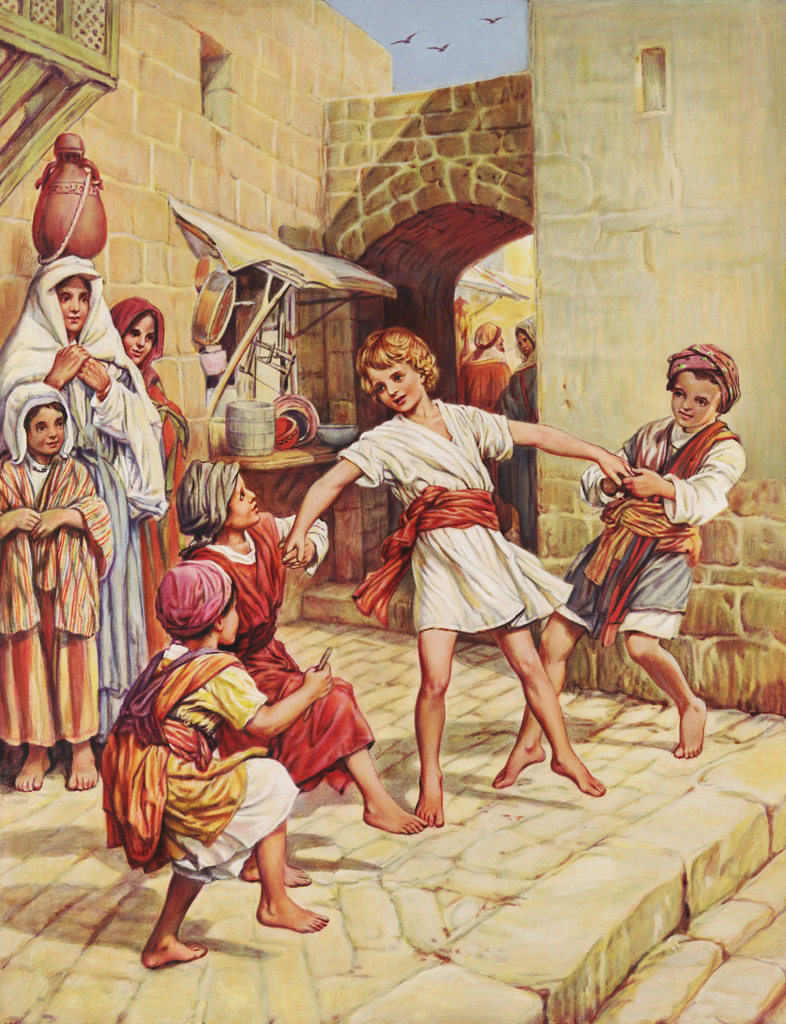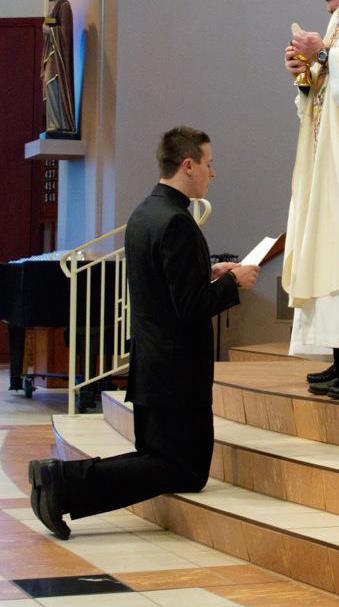In the beginning, God welcomed. Into this new world unseen came energy and matter, light and dark, flesh and spirit. Like a host arranging everything before guests arrive, God provided abundant food, water, and a garden sanctuary. This primordial welcome set the stage for all acts of hospitality to follow, embedding the practice deep within the fabric of creation itself.
Hospitality is a sacred act, an opening up of care to the other. The Jesuits speak of “cura personalis”, meaning care for the whole person. Hospitality involves caring for the physical, emotional, and spiritual needs of others. It’s about creating a space where people feel valued, heard, and cared for in their entirety.
 The kingdom of God is like a mustard seed which grows into one of the largest of trees, providing shade and shelter for the birds, and food for the animals. Might we say that all the kingdom parables of Jesus are really saying “divine hospitality is like…”?
The kingdom of God is like a mustard seed which grows into one of the largest of trees, providing shade and shelter for the birds, and food for the animals. Might we say that all the kingdom parables of Jesus are really saying “divine hospitality is like…”?
My wife and I love hosting guests at our home, but I’ll admit, it tends to be more about entertaining than about hospitality. We tidy up our messes, clean, and implore our kids’ best behaviour. Entertaining often focuses on impressing guests, while hospitality welcomes others into your own vulnerable space, your own real-life. It puts the relationship above showcasing an image.
In biblical times hospitality was a moral duty, a sacred obligation. It mirrored God’s covenant commitment to Israel and sharing a meal was seen as establishing a bond of peace.
 Welcoming the Stranger
Welcoming the Stranger
The creation story welcomes humanity as strangers into a new world. God offers everything the first people needed to live a life of flourishing. The welcoming of a stranger in the ancient world was certainly a survival mechanism, as there weren’t hotels or restaurants. But the creation story reminds us that welcoming the stranger is for no other reason than seeing the other as a part of one’s family.
When Abraham and Sarah welcomed three strangers (Genesis 18:1-8), it was an act of generosity toward fellow human beings. And they turned out to be divine messengers. The passage shows Abraham’s enthusiasm in offering his guests refreshment and rest. In fact, when he saw them passing by he ran out to greet them.
Nurturing and Nourishment
Hospitality isn’t just about opening the door; it’s about nourishing body and soul. From the very beginning, God’s hospitality included provision. The creation story doesn’t just describe a beautiful world; it details a world abundant with food, water, and shelter. God, the ultimate host, ensured that humanity’s needs were met before they even knew to ask.
 This divine model of nurturing hospitality finds its echo in Jesus’ ministry. Jesus had withdrawn to a remote place, probably seeking some quiet time. But the crowds followed him. Instead of sending them away, Jesus welcomed them. When evening came, he didn’t just preach to their souls but attended to their bodily needs as well. With five loaves and two fish, he created a feast that not only filled bellies but also revealed God’s abundant love and care.
This divine model of nurturing hospitality finds its echo in Jesus’ ministry. Jesus had withdrawn to a remote place, probably seeking some quiet time. But the crowds followed him. Instead of sending them away, Jesus welcomed them. When evening came, he didn’t just preach to their souls but attended to their bodily needs as well. With five loaves and two fish, he created a feast that not only filled bellies but also revealed God’s abundant love and care.
But nurturing isn’t always about grand miracles. Sometimes, it’s as simple as opening your home and sharing a meal. Think of Mary and Martha welcoming Jesus (Luke 10:38-42). Martha busied herself with preparations, embodying the practical side of hospitality. Mary, on the other hand, sat at Jesus’ feet, listening. Both were expressions of welcome and care.
Humble Service
It goes without saying that hospitality is also a form of peacemaking and friendship-building. And true friendship is rooted in mutual service. Ignatius says that love is at its best in concrete expressions of mutual giving.
Consider the story of the Shunammite woman (2 Kings 4:8-17). This unnamed woman of means noticed the prophet Elisha passing by her town regularly. Recognizing his need for rest and nourishment during his travels, she took the initiative to offer him hospitality. But she didn’t stop at just offering a meal. She went above and beyond, convincing her husband to build a small room on their roof, furnishing it with a bed, a table, a chair, and a lamp. This wasn’t a one-time act of kindness, but a sustained commitment to service. Her generosity created a sanctuary, a home-away-from-home for Elisha. The prophet, moved by her kindness, asked what he could do for her in return. Despite her apparent wealth, she had no child and her husband was old. Elisha then promised her a son within a year – a promise that came to pass. In this beautiful exchange, we see how humble service opens the door to unexpected blessings, how hospitality creates space for miracles to unfold.
True hospitality strips away the markers of status that we so often cling to. It dismantles the expectations that we are on different planes – teacher and student, master and servant, host and guest.
During the Last Supper Jesus kneels down to wash his disciples’ feet. Here is Jesus, their teacher and Lord, performing a task usually reserved for the lowliest servant. It’s a radical act that challenges our notions of power and position. True hospitality, as Jesus demonstrates, isn’t about maintaining our status or keeping others in their place. It’s about creating a space where these worldly distinctions fade away, where we meet one another simply as fellow human beings

Creating Space for Transformation
Hospitality also creates a space for transformation: for strangers to become friends, for worldly distinctions to fade away, and for new things to happen.
Abraham and Sarah’s encounter with the three divine strangers led to the transformative promise of a son in their old age. The Shunammite woman’s hospitality to Elisha also leads to the prophecy that she will bear a son. Martha and Mary’s understanding of hospitality widened. And Jesus’ washing his friends’ feet transformed their understanding of service and mission.
Consider Lydia’s encounter with Paul in Philippi (Acts 16:11-15). As Paul shared the gospel, Lydia’s heart opened to receive it, leading to her baptism. Her immediate response was an act of hospitality: she insisted Paul and his companions stay at her home. Here, we see hospitality and conversion intertwined. Lydia’s newfound faith expressed itself through welcome, and her hospitality in turn created a space for the early church to grow in Philippi. Her open heart led to an open home, each reinforcing the other in a beautiful cycle of transformation.
As we open our spaces and hearts to others, we participate in this ancient rhythm of creation, echoing God’s own boundless welcome. In every act of hospitality, whether grand or small, we mirror the divine generosity that first breathed life into the world.
Hospitality, then, is not just a social nicety, but a profound spiritual practice. It’s a way of co-creating with God, of extending the borders of Eden into our homes, our communities, and our world. As we welcome the stranger, nourish body and soul, serve humbly, and make space for transformation, we participate in God’s ongoing work of redemption and renewal.
May we, like Abraham running to greet strangers, like Mary sitting attentively at Jesus’ feet, like Lydia opening her home to the early church, embrace the sacred call of hospitality. For in doing so, we not only bless others but also open ourselves to the surprising, transformative presence of the divine in our midst.
Related posts:









Your distinction between entertainment and hospitality is an eye-opener for me! And heart opening for me as well. I love to “entertain”. You have given me a new perspective on being hospitable! Thank you!
I see hospitality as an act of love, given freely and unconditionally by God through the Spirit, and as you say, opens a space to nurture the body and soul, allows for transformation, provides for peace. Thank you for sharing you.